Nivedita Mukerjee
Education consultancy for parents and schools
3-2-1 Tuesdays with Ms Niv

Issue #291, 27th January 2026
“Can every child in our school freely express their thoughts, concerns, and experiences without fear?”
“What barriers exist—visible or invisible—that prevent any child from fully accessing education, safety, and dignity here?”
“If I were a vulnerable child in this school—one who is struggling, different, or without strong adult advocates—how would my daily experience feel?”
Happy Republic Day fellow educators. Here are 3 questions for us to reflect as we celebrate the 77th year of our large and unique democracy.
This is a free newsletter. If you like my content, please subscribe by entering your email address here.
Three Images of the Week
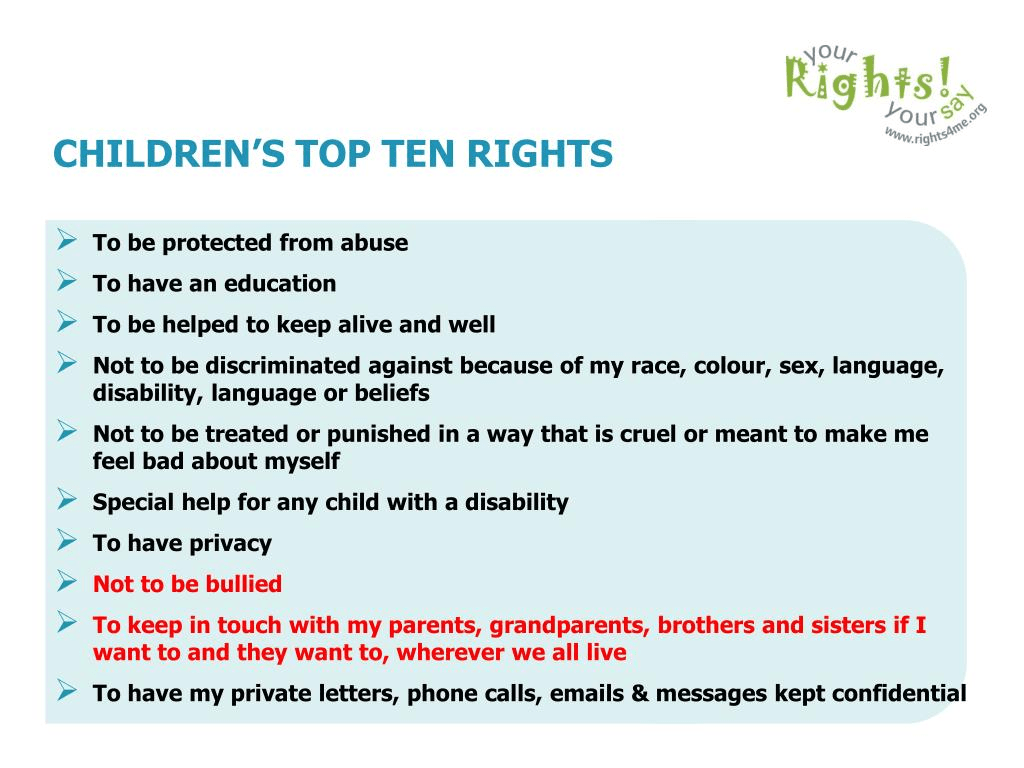
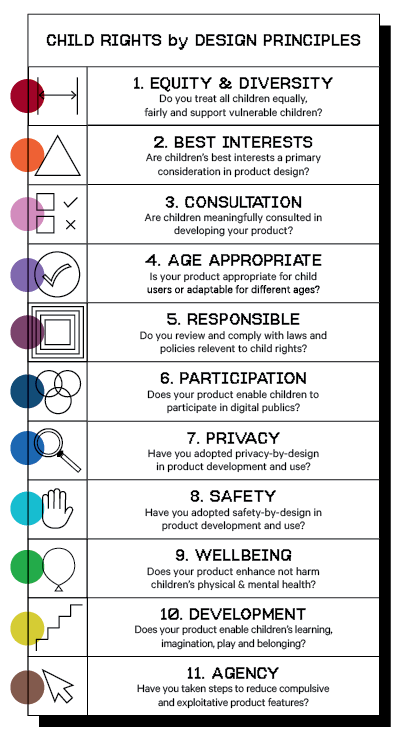
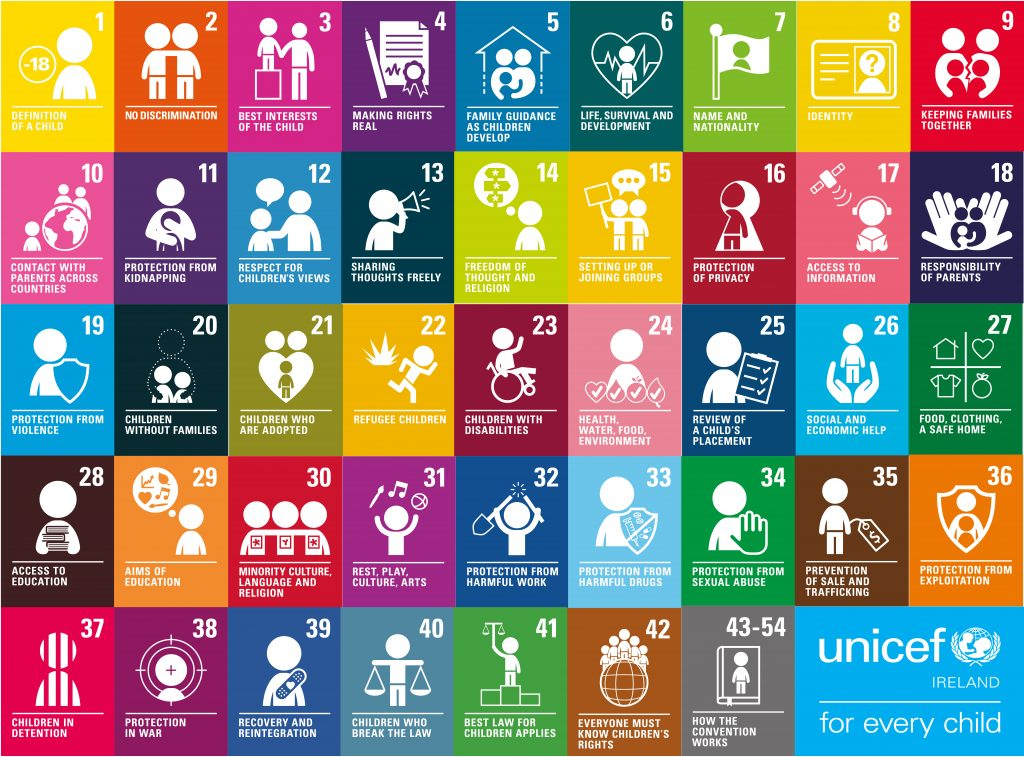
Two Thoughts of the Week
“It takes a whole village to raise a child.”
African Proverb
“There is no trust more sacred than the one the world holds with children. There is no duty more important than ensuring that their rights are respected, that their welfare is protected, that their lives are free from fear and want and that they grow up in peace.”
Kofi A. Annan, UN Secretary-General
One Video of the Week
Movement for Children’s rights and to bring positive changes in the society through her hard work and determination with the help of UNICEF. Sandhya Kiran Saroj is a young and dynamic student, an aspiring doctor and the Prime Minister of Young Advocates for Social Harmony (YASH), a Children’s Parliament that aims to implement Sustainable Development Goals. YASH aims at effectively executing the rights provided to children in India. She is aligned to YASH’s goal of creating a pilot group of empowered advocates from vulnerable communities of neighborhoods in Delhi and Suburban Mumbai for active engagement in local, global & child rights earth rights issues. She hopes to bring about positive changes in the system and in our society through her work and is grateful for the support of UNICEF and PRATYeK.
Reading with Ms. Meenu: Tip of the week
Reading Strategies for Young Adults: Building Skills for Deeper Understanding and Lifelong Learning
Reading is a critical skill for young adults, supporting academic success, personal growth, and independent thinking. As texts become more complex in middle school, high school, and beyond, young readers benefit from intentional strategies that help them engage deeply, understand meaning, and stay motivated. Effective reading strategies empower young adults to move beyond surface-level reading and become confident, thoughtful readers.
One important strategy is active reading. Encouraging young adults to annotate texts—by highlighting key ideas, jotting notes in the margins, or recording questions—helps them stay focused and process information more deeply. Pausing to summarize sections in their own words strengthens comprehension and memory.
Another essential approach is purpose-driven reading. Before beginning a text, young readers should ask: Why am I reading this?Whether the goal is to analyze an argument, understand a theme, or gather information, having a clear purpose guides attention and improves retention. Previewing headings, introductions, and conclusions also helps readers anticipate content and structure.
Building vocabulary through context is especially important at this stage. Young adults encounter increasingly sophisticated language, and learning to infer meaning from context, word parts, or surrounding sentences supports fluency without interrupting reading flow.
Discussion and reflection play a powerful role in comprehension. Talking about what they read—through book clubs, classroom discussions, or informal conversations—allows young adults to test ideas, hear different perspectives, and refine their understanding. Reflection questions such as What surprised me?, What connections can I make?, or Do I agree with the author? encourage critical thinking.
Finally, choice and consistency matter. When young adults have access to reading materials that reflect their interests, identities, and goals, reading becomes more engaging and meaningful. Establishing a regular reading routine—whether for school, pleasure, or personal growth—helps build stamina and confidence over time.
By combining purposeful strategies with supportive environments at home, school, and in libraries, young adults can develop strong reading habits that foster comprehension, critical thinking, and a lasting love of learning. Here is a list of some YA novels trending these days.
- The Hate You Give by Angie Thomas.
- A Good Girl’s Guide to Murder by Holly Jackson
- One of us is Lying by Karen M. McManus
- The Inheritance Games by Jennifer Lynn Barnes
- Children of Blood and Bone by Tomi Adeyemi
- The Raven Boys series by Maggie Stiefvater
Happy Reading!
Meenu Gera Consulting home and school librarian reading guide
Career assessment, guidance, and placement strategies:
Summer Immersion Program, Flame University
As quoted on the website, ‘ The FLAME University Summer Immersion Program (FUSIP) 2026 offers an opportunity for high school students to gain a first-hand understanding of liberal education. The curriculum is interdisciplinary and delivered in a framework that embraces the spirit of liberal education at FLAME University – an essence that places special emphasis on critical thinking, experiential learning, and engagement with diverse ideas and perspectives while inculcating the values of leadership, teamwork, and effective communication.’
Here’s a list of engaging, fulfilling, and learner-centric programs offered by Flame University:
- Entrepreneurship Lab
- Media Literacy
- Acting Basics
- Hit the Road – A Financial Adventure
- The exciting world of Data Visualization
- Cracking the Code: An Exploration into the Key Ideas in Computer Science
- Rise of the Machines: Artificial Intelligence and Generative AI
- Marketing Essentials
- Climate Change and Pandemics – Converging Threats
- Philosophy in Everyday Life
- Introduction to Literary and Cultural Studies
- The Fast and Fun Way to Learn German
- Calligraphy
- The Psychology of Colour
- ThinkLab
- Film Appreciation and Film Making
- Rural Immersion
- Dance Mystique
To know more, please visit: https://www.flame.edu.in/academics/summer-immersion-program/courses-offered
Fermata Career Solutions inspires young individuals aged 13 to 30 to unlock their potential through focused and customised career and college counseling. With expertise in University Readiness, CareerGym, and Master Parenting, the experts empower you to pursue your dreams and shape your future with confidence. More about us on www.fermataco.com
Showcase: Thrive Beyond School – A unique STEAM education project for very young learners.
– Pooja Khatter, facilitator, Thrive
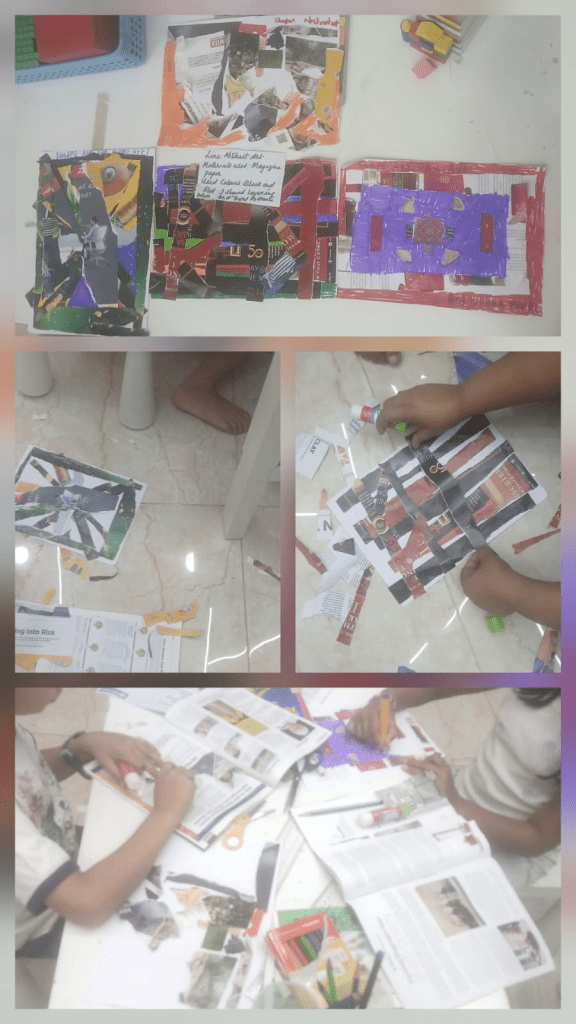
The class started with a discussion on classification. The children shared what classification meant to them in their own words. Mayra said it means segregating, Samyuktha said sorting, and Neev said grouping. Later, the children sorted pictures using their own ideas. Samyuktha grouped animals, Neev sorted by colours, and Mayra grouped food items, showing their understanding of classification.
Abstract art was then introduced using learning resources and real abstract artwork displayed on the wall. The children understood that abstract art is about making patterns and not drawing real-life scenes. They created their own abstract classification artwork using shapes, lines, colours, and patterns. The children used old magazines to create their artwork and showed creativity and interest throughout the activity. Samyuktha: 7.9 years old. Neev & Mayra: 7.5 years old
Dear reader,
I work with the school leadership team as an advisor and collaborate with teachers as a pedagogical trainer. I also help parents as a parenting counselor and regularly engage one-on-one with students as a personal guide and mentor. This weekly newsletter shares what I read, learn, and experience.
3-2-1 Tuesdays with Ms. Niv is a newsletter you can subscribe to and enjoy your learning journey with me.
3-2-1 Tuesdays with Ms Niv

Issue #290, 20th January 2026
Am I consistently getting enough sleep and arriving prepared? Do I have a dedicated time and place for homework and studying? Am I balancing school with breaks and activities I enjoy? Yes/No questions for a student;
Have I established predictable classroom procedures that students understand?Am I managing my time so I’m not constantly overwhelmed?Do I build in regular moments to check student understanding and adjust accordingly? Yes/No questions for a teacher.
Do I build in regular moments to check student understanding and adjust accordingly?Am I staying informed and connected without being overbearing?Are we making time for both responsibilities and family connection? Yes/No questions for a parent.
Its a brand new year, and here’s a checklist of 3 questions for you. A quick check if your routine is helpful to you in your role as a student/teacher/parent. Did it help?
This is a free newsletter. If you like my content, please subscribe by entering your email address here.
Three Images of the Week
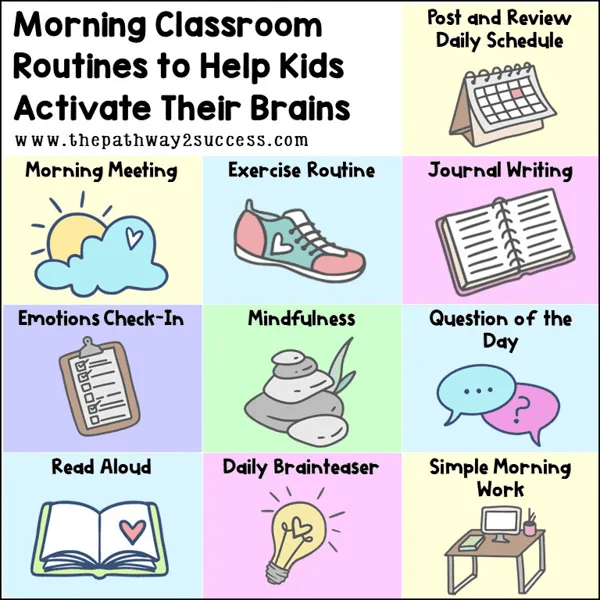
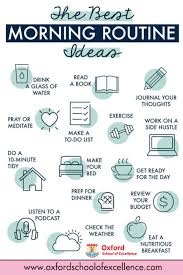
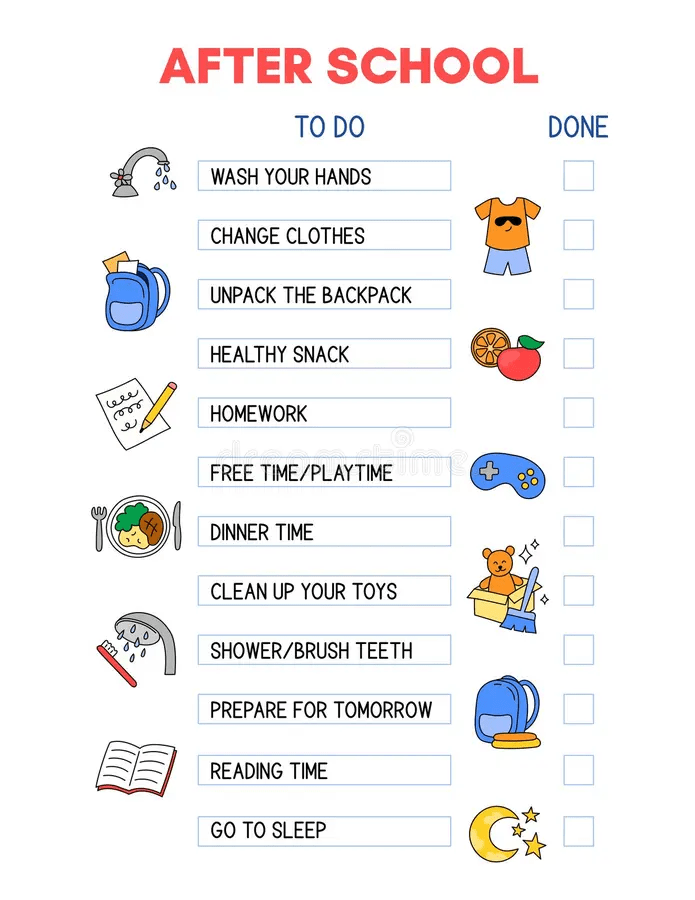
Two Thoughts of the Week
“The secret of your future is hidden in your daily routine.” Mike Murdock
“When I trained for ‘Creed,’ I had about a year in advance to know what I was doing before. So I lived like a fighter, you know? I went through the workout routine, the diet, training with real boxers, training with real trainers, did the whole thing.” Michael B. Jordan
One Video of the Week
Is there something you’ve always meant to do, wanted to do, but just … haven’t? Matt Cutts suggests: Try it for 30 days. This short, lighthearted talk offers a neat way to think about setting and achieving goals. Talk by Matt Cutts.
Reading with Ms. Meenu: Tip of the week
Reading Routine vs. No Routine: Why a Simple Reading Schedule Can Change EverythingIf you’re a parent who wants to read more with your child—but it keeps slipping through the cracks—you’re not alone. Most families aren’t skipping reading because they don’t care. It’s usually because the day gets messy: dinner runs late, homework takes over, screens sneak in, and everyone’s tired. Here’s the good news: you don’t need a perfect “Pinterest” routine. You just need something predictable enough that your child starts expecting it—like brushing teeth.Let’s break down what’s different when families have a reading routine vs. when reading is random and “only when we can.”What counts as a reading routine?A reading routine is simply:A consistent time or trigger (after bath, after dinner, right after daycare, before bed, etc.)Most days of the weekShort and doablePositive (no pressure to “teach” or quiz)A routine isn’t about being strict—it’s about making reading automatic. Parents with a reading routine: what it looks like at home. When reading is part of the day, kids often:1) Hear more words (without you trying) :Consistent reading naturally increases how much language kids absorb—new vocabulary, sentence structure, and storytelling patterns. Over time, that adds up.2) Build attention and comprehension more steadily:Routine reading gives kids repeated practice sitting with a story, following a sequence, and making sense of what’s happening.3) Feel calmer (especially at bedtime):Reading can become a “wind-down cue.” If your child knows, “After pajamas we read,” bedtime often becomes less of a negotiation.4) Associate books with comfort and connection:Routine reading becomes “our thing.” Kids remember the closeness more than the lesson.5) Ask for reading on their own:This is magic. When reading is consistent, many kids start requesting it—because it’s familiar and enjoyable.Parents without a reading schedule: what tends to happenWhen reading is occasional, families often see these patterns:1) Reading gets bumped easily:It competes with screens, chores, and late nights. And because there’s no set time, it’s easy to postpone: “We’ll do it tomorrow.”2) It can feel like a chore:Instead of being a cozy habit, reading becomes something you feel guilty about—like another item on the to-do list.3) Kids aren’t sure what to expect:If reading happens randomly, children don’t build that “this is part of my day” expectation. So, they’re less likely to request it.4) It often happens only when kids are already overtired:Then reading gets associated with meltdowns or rushing—which makes everyone less excited next time.The truth: consistency beats durationA lot of parents think reading “counts” only if it’s 20–30 minutes.But most families do better with something like:5–10 minutes4–6 days/weekSame trigger every timeSo even if you skipped one day don’t get disappointed just re-start the reading routine the next day.
Happy Reading!
Meenu GeraConsulting home and school librarian reading guide
Dear reader,
I work with the school leadership team as an advisor and collaborate with teachers as a pedagogical trainer for whole school development. I also help parents as a parenting counselor and regularly engage one-on-one with students as a personal guide and mentor. This weekly newsletter shares what I read, learn, and experience.
3-2-1 Tuesdays with Ms. Niv is a newsletter you can subscribe to and enjoy your learning journey with me.
3-2-1 Tuesdays with Ms Niv

Issue #289, 13th January 2026
“Above average time spent on leisure activities, positively impacted people’s careers” the 2020 scientific study in the journal of vocational behaviour says so. Go ahead parents, educators and students, pick up that guitar, that ball, that writer’s pen, that paint brush, those hiking boots, those books…. that are waiting for you to find time, find leisure, find opportunity from what your “career” is. Bring your whole self to your career and hobby, and enjoy life with enriched moments.
This is a free newsletter. If you like my content, please subscribe by entering your email address here.
Three Images of the Week
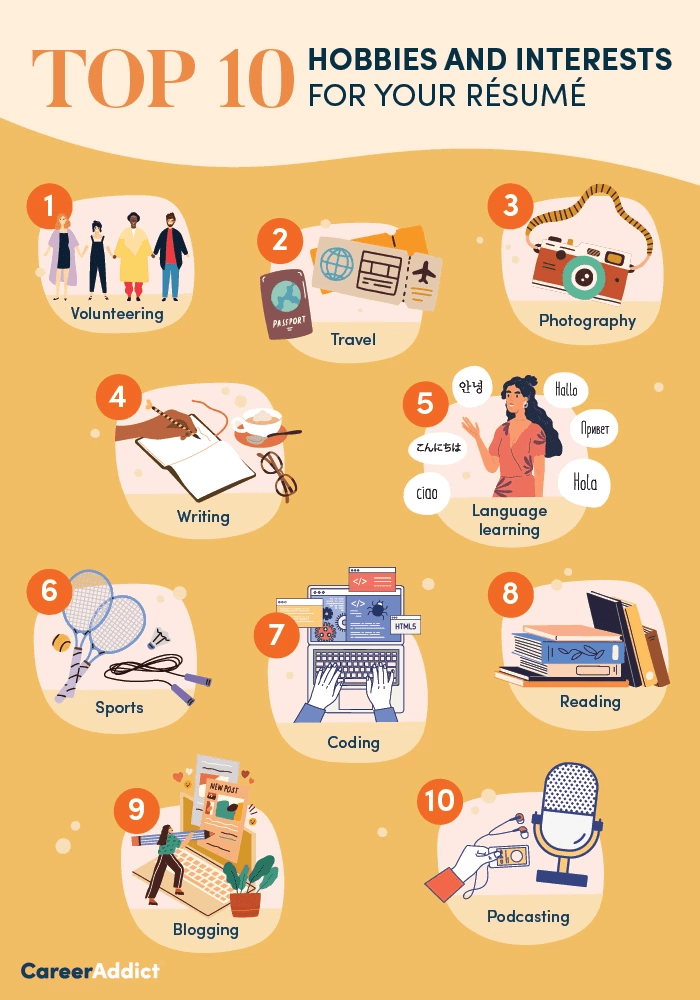
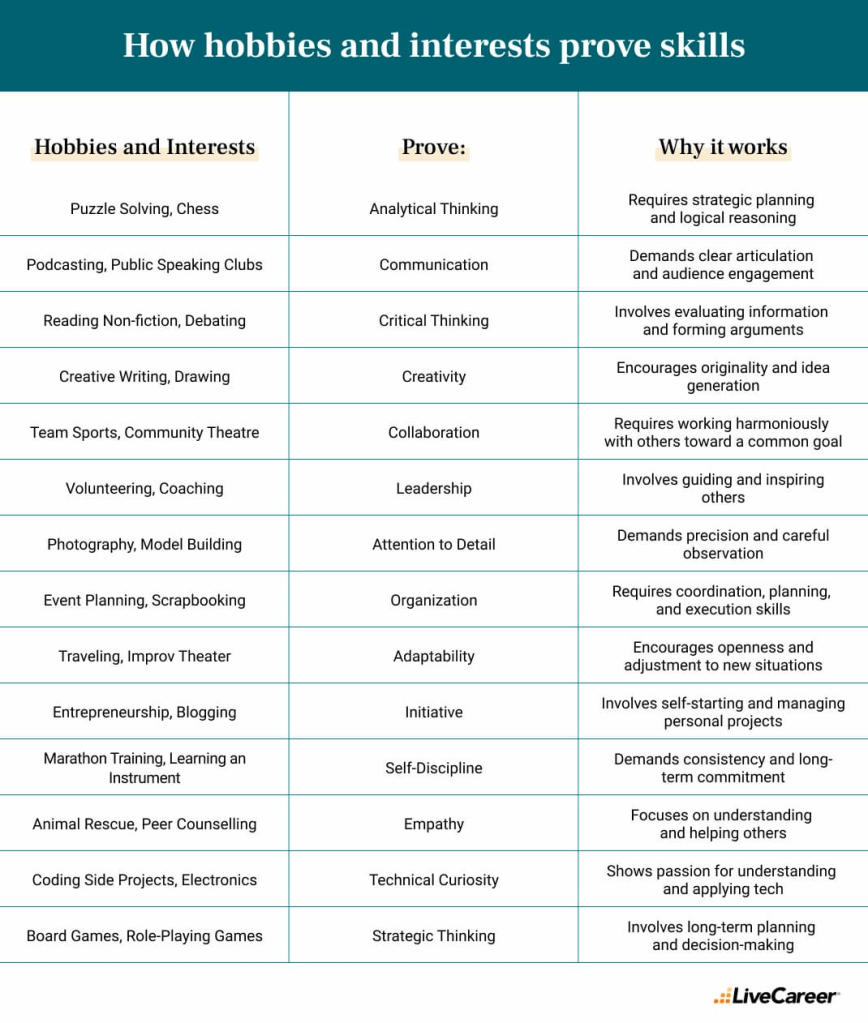
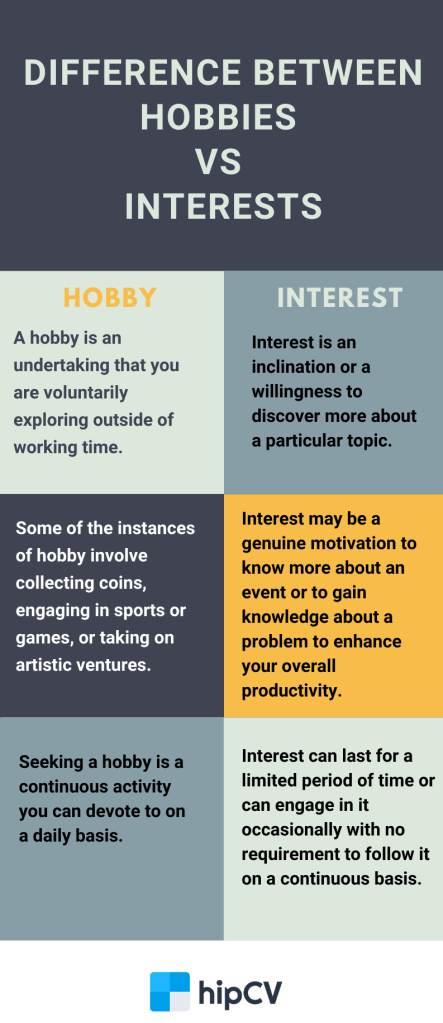
Two Thoughts of the Week
“Music was never just a hobby for me. I’d pick up a guitar every day to work on whatever I was writing at the time. I would put my ideas in songs the way some people might put them in diaries or journals. “Tracy Chapman
“When you meet someone, ask about what hobby they have, not what they do. People always ask me about cooking, but I prefer to talk about tennis or boxing.” Wolfgang Puck
One Video of the Week
The Remarkable Impact of Hobbies on Career | Karen McFarlane Holman, Ph.D. |
We are masters of feeling guilty every time we get distracted by our hobbies when we feel like we should be working. But what if our hobbies are actually enhancing our careers? Bolstered by a recent scientific study, scientist and punk rocker Karen McFarlane Holman proposes a way for us to quickly dispel guilt and identify our strengths that we may not have recognized before. Karen McFarlane Holman, Ph.D. is a chemistry professor at Willamette University and is the Founder and Director of Science Rockstar Kids, a unique online program that offers interactive online science explorations for elementary school-aged children.
As a recipient of the Carnegie Foundation Professor of the Year award, Karen has been inspiring and empowering tens of thousands of budding scientists for 30 years through her classroom and online teaching, science camps for girls in Saudi Arabia, laboratory research mentorship, a scientific TEDx talk, and 26 book chapters and articles. As Founder and CEO of Punk Rock Professor, LLC, her current mission is to use creativity and connection in a variety of accessible platforms to inspire kids and adults to follow their curiosity of the world around us. Karen’s dedication to empowering unheard voices extends into music as a punk rocker, having performed on hundreds of stages for over three decades. She still plays in two actively performing bands, City of Pieces and Hot Sheets.
She is a podcaster, longtime radio programmer, and is the Founder of KMUZ-FM, the first community radio station in Salem, Oregon.
Reading with Ms. Meenu: Tip of the week
Happy New Year Readers!
As conversations about artificial intelligence become more common, researchers worry that increased reliance on AI would
weaken essential human cognitive skills such as critical thinking, memory, and deep concentration. While these concerns are worrisome, the question is not whether technology exists, but how we choose to engage with it.
Rather than replacing human thinking, we must intentionally strengthen it. This means creating spaces and habits that encourage reflection, curiosity, and sustained attention—skills that develop through active mental engagement. One powerful and accessible way to do this is through reading. Reading, especially when done thoughtfully and with discussion, exercises the brain in ways that quick digital interactions often do not. It requires focus, imagination, interpretation, and emotional understanding.
Why Talking About Stories Matters
At the library, reading is more than just turning pages—it’s about sharing ideas, asking questions, and making connections. One of the most powerful ways to support children’s reading development is through discussion while reading stories together.
When adults and children talk about a story as it unfolds, children understand it more deeply. Simple questions like “What do you think will happen next?” or “Why do you think the character feels that way?” help children make sense of the story and remember it better. These conversations turn reading into an active experience.
Story discussions also help build vocabulary and language skills. Talking about pictures, characters, and events introduces new words in a meaningful way. When adults explain unfamiliar words or expand on a child’s response, they are helping children grow as confident communicators—skills that support reading and writing later on.
Discussing stories helps children understand emotions, develop empathy, and see the world from different perspectives. When children connect a story to their own experiences, reading becomes more engaging and enjoyable.
Perhaps most importantly, discussion makes reading social. Sharing thoughts about a book builds connections between children and caregivers and creates a positive association with reading. At storytime or at home, these shared moments help children see reading as something fun, meaningful, and worth returning to again and again.
Next time when you read together, don’t worry about stopping to talk—those conversations are where the real learning happens.
Happy Reading!
Meenu Gera, Consulting home and school librarian reading guide.
I Think, I Wonder, I Ask
–Dr Shreelakshmi Subbaswami, Academic Director, Vijaya School Hassan, Karnataka
What Do You Do After School? On Weekends?
Recently, while engaging in conversations with students, parents, and educators, I asked a simple question: What are your hobbies? Most educators and parents struggled to answer, often responding with, “Oh, we don’t have time.” Only a handful of students could name something they genuinely enjoy— not for grades, not for medals, but purely for the joy of doing it.
What was particularly interesting was the parents’ response to after-school activities. Many parents spoke about enrolling their children in online maths or science classes. Some mentioned dance, drawing, or sports—but often with an underlying expectation of certificates, competitions, or measurable achievements. Rarely was the intention about joy, exploration, or emotional release. Students, on the other hand, shared a different reality. “We don’t have time,” some said. Others spoke about constantly moving from one class to another, juggling expectations and packed schedules. It made me pause and ask: how did we reach a place where hobbies feel like a luxury—or worse, a distraction?
I believe developing a mindset that values hobbies during the foundational years matters deeply. Hobbies may change with age—and that is natural. But having something that adds flavour to life, nurtures curiosity, and offers joy can shape resilience, creativity, and bring balance well into adulthood.
Three questions for you…
- What hobby did you once love—and when did you stop making time for it?
- What message are we sending children when every activity must yield an outcome?
- How can schools and families protect unstructured, joyful time?
Showcase: Thrive Beyond School – A unique STEAM education project for very young learners.
– Pooja Khatter, facilitator, Thrive
During the class, children learned that math is connected to music and the world around them. They understood that longer and shorter strings make different sounds, with shorter strings making higher sounds and longer strings making lower sounds. Through number patterns and clapping, they learned that numbers can form patterns just like musical rhythms. While exploring shapes, they understood that shapes have different sides and help us measure and understand size and length. They also learned that four triangles can be joined together to make a square. By creating their own sound patterns, children discovered that numbers, shapes, and music are all connected, making math fun and meaningful. Neev,Mayra & Havishka: 7.5 years old
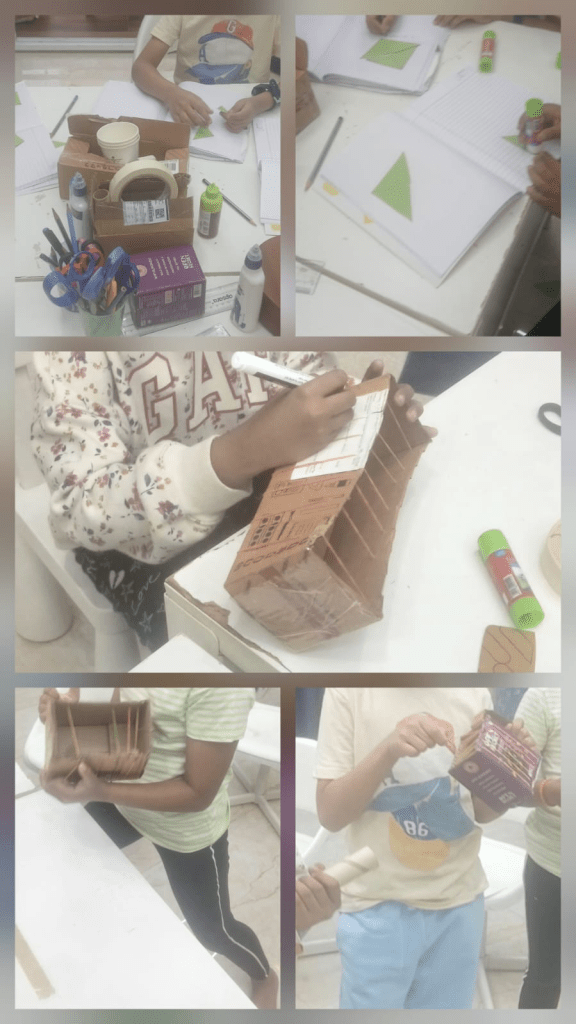
Dear reader,
I work with the school leadership team as an advisor and collaborate with teachers as a pedagogical trainer for whole school development. I also help parents as a parenting counselor and regularly engage one-on-one with students as a personal guide and mentor. This weekly newsletter shares what I read, learn, and experience.
3-2-1 Tuesdays with Ms. Niv is a newsletter you can subscribe to and enjoy your learning journey with me.
3-2-1 Tuesdays with Ms Niv

Issue #288, 6th January 2026
When will I use it in real life?
Have you faced this question as an educator? as a parent? It is time to come up with concrete answers to this question in the age of Generative AI. What are we teaching? Why does the student need to learn this? When and how will the student use it? Are we teaching for now, which is changing every day, or for the future which no one knows the shape of?
This is a free newsletter. If you like my content, please subscribe by entering your email address here.
Three Images of the Week
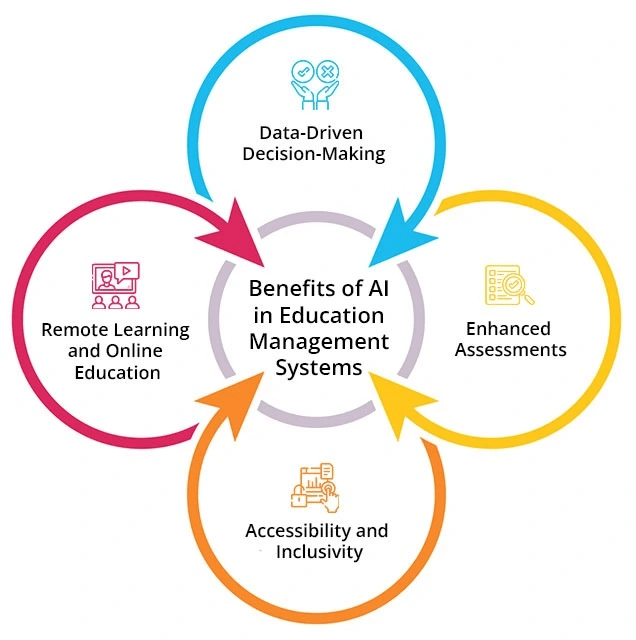


Two Thoughts of the Week
“The reasonable conclusion is that there needs to be a split between assignments on which using AI is encouraged and assignments on which using AI can’t possibly help.“
“A.I. will force us humans to double down on those talents and skills that only humans possess. The most important thing about A.I. may be that it shows us what it can’t do, and so reveals who we are and what we have to offer.”
One Video of the Week
The emergence of ChatGPT in November of 2022 took the world by storm: particularly the world of education. With this technology able to generate complex pieces of writing, solve advanced math equations, generate code, and more with the push of a button, educators across the country have entered a state of panic. How are educators supposed to teach students when they have this technology at their literal fingertips? For too long, the field of education has been teetering at the precipice of serious change, and the widespread accessibility of generative AI may just be the catalyst education needs in order to progress in tandem with the rest of the world. But first, educators need to reevaluate their answer to the tough question: why do we teach? Natasha Berg, M.Ed. works as the Multimedia and Technology Integration Specialist at a local high school in South Dakota. She has spent her career learning about and developing her skills in education and educational technology. Berg believes that new and emerging technology should be integrated into classrooms as it fully prepares students to enter the 21st century workforce and helps make learning accessible to students of all abilities.
Reading with Ms. Meenu: Tip of the week
As we keep continuing on Word Wisdom here are some more strategies to build a strong spelling base for your children.
Look for the Knowledge they Demonstrate: Parent’s assessments of a kid’s spelling usually amounts to deeming an attempt right or wrong. But that black and white thinking doesn’t serve kids. To teach, we have to learn to see shades of gray. In this context, that means looking at misspellings with an eye for what kids know about sounds, letters and the relationships between them. For example, ask yourself what’s right within a misspelling. Does the writing show conventional letters? Is the initial sound of the word represented (eg. spelling cat with K-T)? Are all the sounds represented? Are some letters in the proper sequence? This kind of analysis of kids’ spelling is your window into their knowledge base.
And while it’s convenient to envision learners progressing through set phases – say; from spelling phonetically to applying spelling patterns to taking word meaning and word origin into consideration – they don’t. The process is much messier. You’ll need to make your assessments word by word because kids show some knowledge of letter sequences before they learn how letters and sounds connect. They spell some words flawlessly from the start because of the experiences they’ve had and attention they’ve paid to them. All kinds of factors play a role in their learning, from the complexity of the word to the number of exposures they’ve had to it and what lessons they’ve received in relevant letter sequences and spelling patterns.
Understand that the journey isn’t linear, try to grasp where your child is with the particular words they are trying to spell and you’ll get a better sense of how you can help. Praise and support every step on the path and the rest will come.
Happy Reading!
Meenu Gera, Consulting home and school librarian reading guide.
I Think, I Wonder, I Ask
–Dr Shreelakshmi Subbaswami, Academic Director, Vijaya School Hassan, Karnataka
Before You Plan Lessons, Plan Yourself!
The start of a new year gives us educators a rare pause just before the end of the academic year- a moment to plan for ourselves before we plan for our children.
We often speak about planning for children, but how often do we plan for ourselves? As educators, we do not enter school as professionals alone. We bring our whole personalities- our experiences, emotions, curiosities, and uncertainties. I believe, for us, the calendar year must become an important marker for personal learning goals: books we wish to read, skills we want to learn, and assumptions we want to unlearn, places we hope to visit, conversations we want to be part of, and experiences that challenge/ enrich us. The nourishment of the head, hand and heart is not just essential, it’s a necessity for educators. So, this new year, consider having time for reflection, for renewal, and for experiences that help reconnect with why we teach.
As we step into this new year, let excitement- not exhaustion lead us. Let new perspectives, people, ideas, spaces, and stories enter our classrooms through us. When we educators choose to enrich our own lives, we unknowingly enrich the lives of our students.
Three questions for you…
– What excites you about this year- personally and professionally?
– What experiences do you want to intentionally plan for this year?
– What skills do you want to deepen- and what are you ready to unlearn?
Showcase: Thrive Beyond School – A unique STEAM education project for very young learners.
– Pooja Khatter, facilitator, Thrive
Neev and Mayra (7 years 4 months) explored place value through a series of engaging, hands-on activities. They began by using a building block mat to represent place value and solve given sums. The concept of regrouping and decomposition was introduced through “trading” in place value, which they applied while solving trading sums, with Neev taking a little extra time to complete the task.
The children compared three-digit numbers using place value and confidently used greater than and less than symbols. They also explored number patterns involving +10 and +100, completing the activity independently.
The session concluded with a fun roller-coaster rounding activity to introduce rounding to the nearest ten, supported by an anchor chart. Overall, the students strengthened their understanding of place value through a variety of meaningful learning experiences.
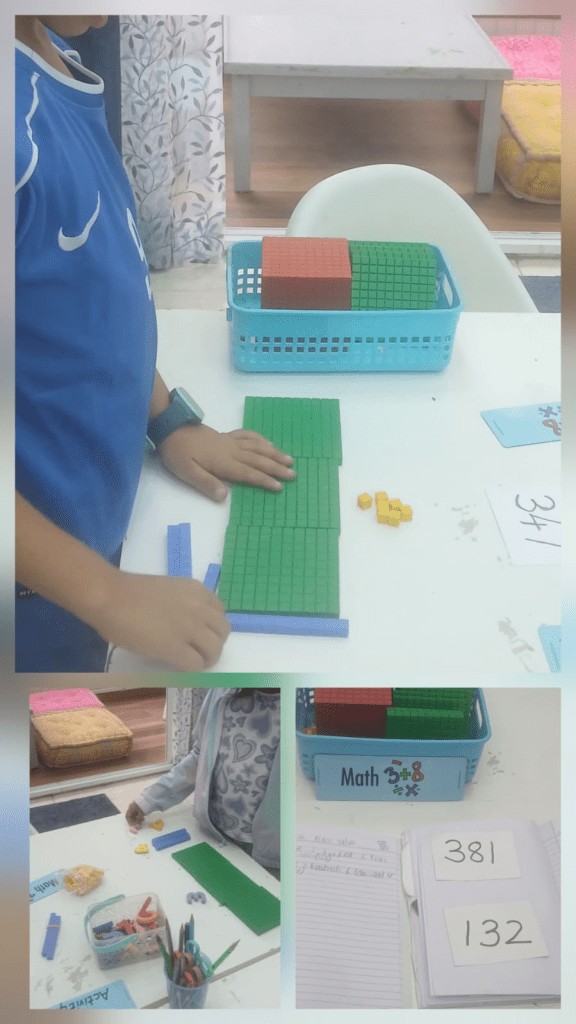
Dear reader,
I work with the school leadership team as an advisor and collaborate with teachers as a pedagogical trainer for whole school development. I also help parents as a parenting counselor and regularly engage one-on-one with students as a personal guide and mentor. This weekly newsletter shares what I read, learn, and experience.
3-2-1 Tuesdays with Ms. Niv is a newsletter you can subscribe to and enjoy your learning journey with me.
3-2-1 Tuesdays with Ms Niv

Issue #287, 30th December 2025
What have I learned this year? What have you learned this year? What has your child/student learned this year – which is not from a video/social media/power point slide/worksheet/written text ONLY? and how much have you retained from that for using next year? What experiences have you gained last year in school/home that you will take with you to next year?
Happy New Year. May we all learn and grow more and better in the next year.
This is a free newsletter. If you like my content, please subscribe by entering your email address here
Three Images of the Week
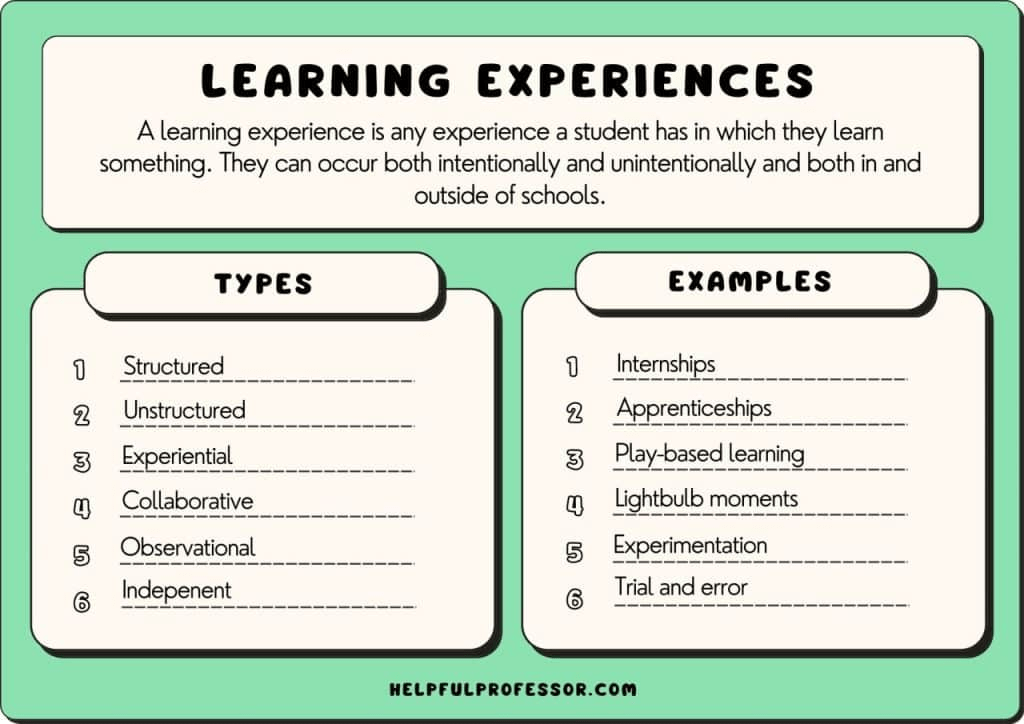

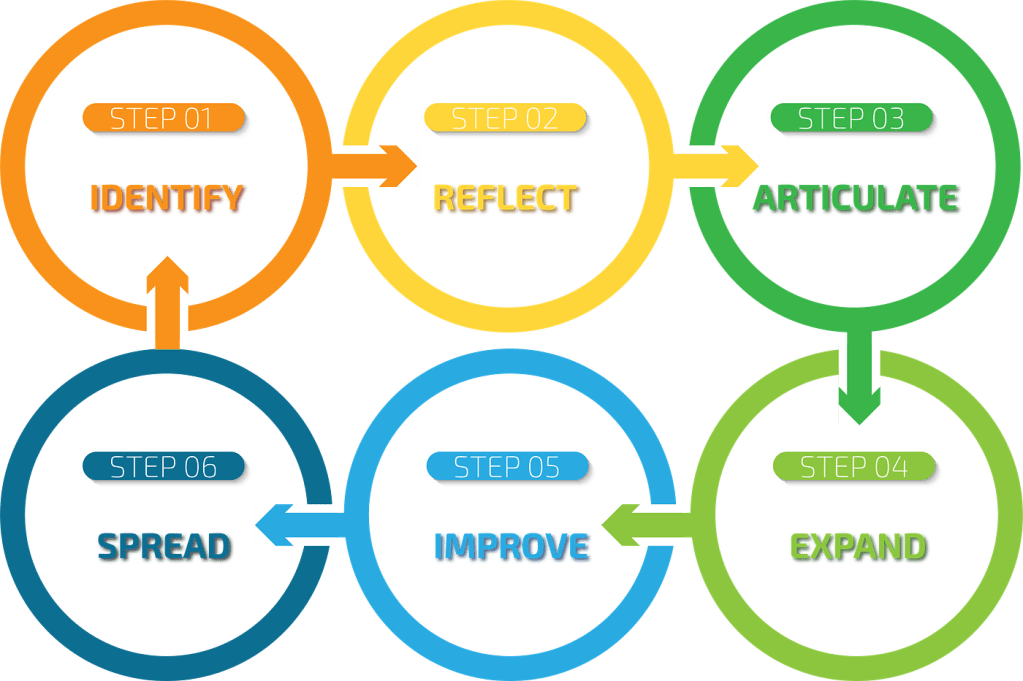
Two Thoughts of the Week
“Some things are so important that you have to learn about them on your own.”
― Paulo Coelho, The Valkyries
“Comfort and luxury may come with owning a high-end car, yet it’s the occasional travel in a crowded bus that truly imparts priceless virtues of patience and humility, unattainable by wealth alone”
― Shabira Banu Hussain Sumbhaniya
One Video of the Week
Educational revolutionary and educator of gifted & talented students, Adrienne Alexander, makes an informed, entertaining, and passionate case for including experiential learning throughout the school curriculum as a fundamental element, distinct from an optional reward. Adrienne Alexander has worked in education in New Zealand and Australia for nearly 30 years, focusing on gifted education since 2014. Much of this work has been in the private sector working for, and then running, Extension Education which provided experiential learning opportunities for gifted children in Brisbane and on the Sunshine Coast. Adrienne has since been snapped up by Education Queensland and is now teaching a specialised program for gifted children in Brisbane. She continues her passion for immersive experiential learning experiences in her current position as she believes that experiential learning increases student motivation and deepens student understanding of classroom concepts.
Reading with Ms. Meenu: Tip of the week
Strategies on How to support strong spelling at Home: Encourage Writing: Although spelling bee contestants spell aloud to demonstrate their mastery, your child’s earliest attempts will likely be on paper. Nurture their writing by always having paper and crayons or colored pencils on hand for them to scribble away long before they can write letters we’d recognize. It’s a joy to behold the creations that a stack of index cards and a pencil in the back seat of the car can inspire.Children as young as 2 or 3 years old demonstrate some knowledge of writing, even if they have no idea yet that it connects with spoken language. Pretend-writing grocery lists, restaurant menus, signs and so on as part of play at home is a precursor to spelling, too. One day you may notice that those scribbles are running from left to right and top to bottom on the page. Another day some conventional looking letters may start popping up amid the slashes and squiggles. You can ask them what their writing says and even transcribe a traditional version of it below their scribbles. Way to write! What does this say? I see. I would write it this way: The dog is happy (Point to each word as you say it.) Bonus: You get a record of funny stories to revisit and share as they grow.
Applaud Early Spelling:The early quality of your child’s spelling reflects things in their phonemic awareness, letter knowledge and the associations they make between the two. With reading, the letters are given to them and they have to sift through their knowledge of a limited set of sounds to approximate a pronunciation. With spelling, they’re hearing a word, segmenting the sounds and settling on one letter sequence from numerous possible combinations. and writing those with their own spellings is OK. Giving kids the freedom to invent their own spellings doesn’t interfere with their ability to learn conventional spellings later. In fact, researchers say the exact opposite is true: “Allowing children to engage in the analytical process of invented spelling, followed by appropriate feedback by parents/teacher has been found to facilitate learning to read and spell, not hamper the process”.
Happy Reading!
Meenu Gera, Consulting home and school librarian reading guide.
I Think, I Wonder, I Ask
–Dr Shreelakshmi Subbaswami, Academic Director, Vijaya School Hassan, Karnataka
Assemblies or Arrivals? How Do We Really Begin a School Day
Not just on the timetable, but in the bodies, minds and emotions of children and educators. For most of us, the answer is predictable. The bell rings. Children gather in rows and columns. A prayer is recited, an anthem is sung in chorus, and instructions are announced. Then, they disperse into classrooms. It feels orderly, familiar and largely unquestioned. If we pause and look closely, this ritual mirrors more of an industrial workflow than a learning space meant for children.
For older students, a structured assembly may hold some relevance. But for younger children, it sits oddly against their natural rhythms. Early years children are not wired to stand silently in large groups. They arrive bursting with stories, emotions, energy, and the need to connect. Morning is the richest time to listen- to their experiences, their feelings, their worlds outside school. Instead, we often ask them to suppress all of that before learning even begins.
Recently, our early years team made a courageous shift. Assemblies were replaced with play. The silence replaced into movement, laughter, conversation. It was unsettling for adults. The loss of control, the sounds, the unpredictability felt uncomfortable. But something else emerged evidently: joy, social connection and readiness to learn. Teachers tuned in immediately because the children were tuned in first.
After all, if our intent is to learn with joy, our mornings must reflect that belief.
Three questions for you…
– What are the real components of your assembly?
– How do you create time and space for children to interact and arrive as themselves?
– And which long-held practices are ready to replace- with what, and why?
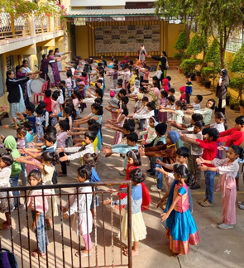
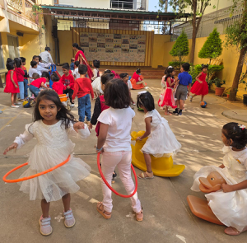
Dear reader,
I work with the school leadership team as an advisor and collaborate with teachers as a pedagogical trainer for whole school development. I also help parents as a parenting counselor and regularly engage one-on-one with students as a personal guide and mentor. This weekly newsletter shares what I read, learn, and experience.
3-2-1 Tuesdays with Ms. Niv is a newsletter you can subscribe to and enjoy your learning journey with me.
3-2-1 Tuesdays with Ms Niv

Issue #286, 23rd December 2025
1. Does your child/student have unstructured time for self-directed activities?
2. Is there time for meaningful social connection outside academic settings?
3. Does your child/student show signs of balance rather than chronic stress?
The goal isn’t just quantity of free time, but quality—time that genuinely restores, connects, and allows for growth beyond academic achievement. If you and your child/student has it then congratulations! well done you. If not, let us aim for it in 2026, a brand new year awaits.
This is a free newsletter. If you like my content, please subscribe by entering your email address here
Three Images of the Week
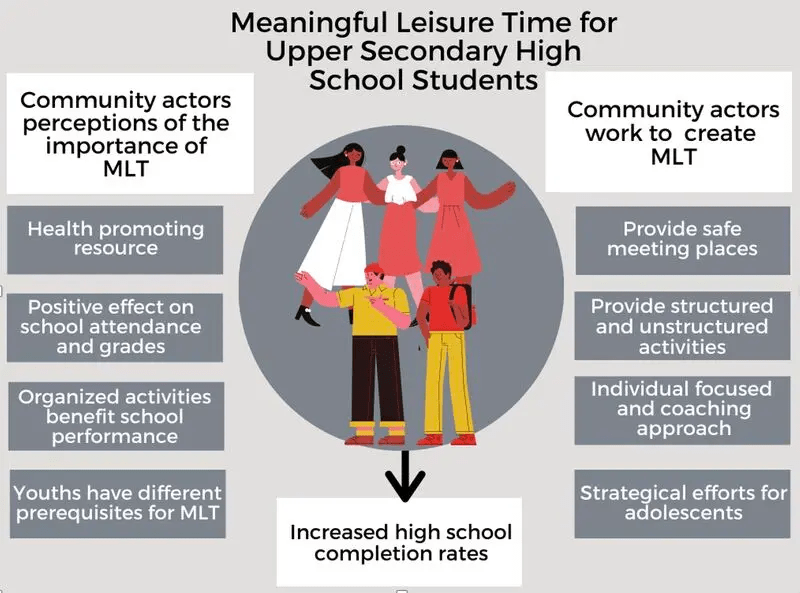
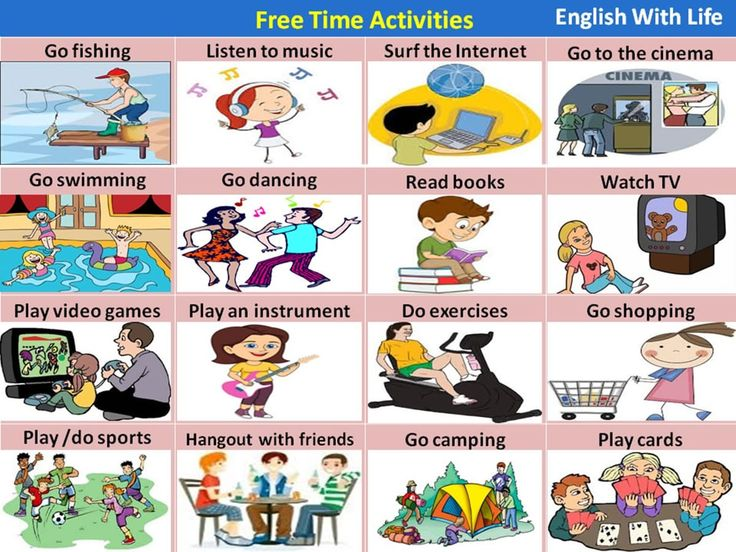
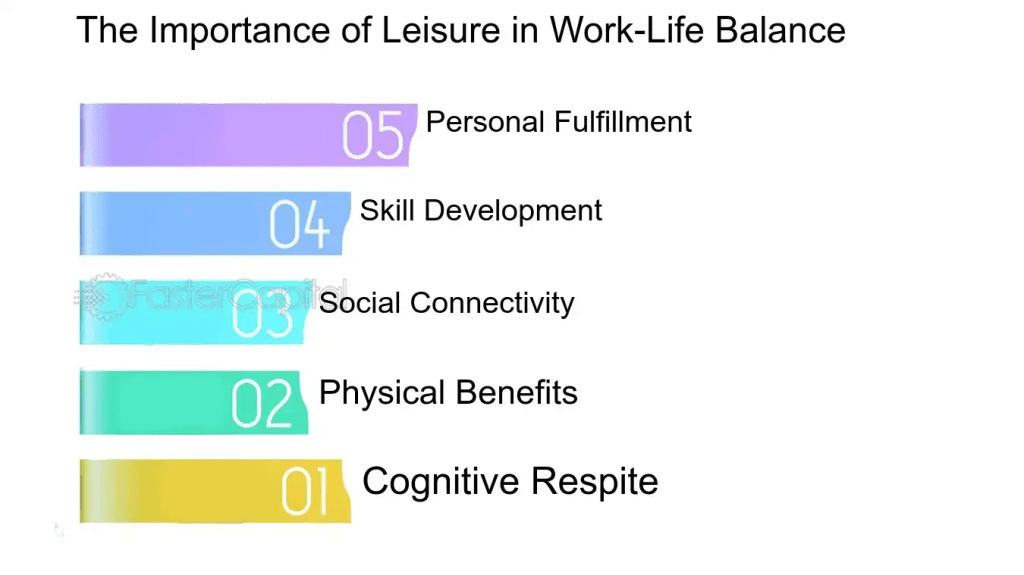
Two Thoughts of the Week
FUN is the safety-valve to let off the steam pressure out of the boiler to keep the old thing from busting. ~Josh Billings, revised by H. Montague
It is in his pleasures that a man really lives, it is from his leisure that he constructs the true fabric of self. ~Agnes Repplier
One Video of the Week
In a society that increasingly measures our worth based on productivity, busyness, and achievement, are we ever really “off”? As Marina Cooley argues, if we identify and limit the hidden work in our lives, we will access true leisure, which simultaneously can unlock creativity and calm the nervous system. Marina Cooley is an Assistant Professor of Marketing at Goizueta Business School. Prior to joining Goizueta, Marina spent more than 15 years in strategic marketing roles at Coca-Cola and Lavva and worked as a management consultant at IBM. A storyteller at heart, she has been featured in the New York Times and Yahoo Finance and honored as one of Poets & Quants 40-under-40 Best MBA professors. In addition to teaching marketing, Marina researches the topic of leisure, specifically focusing on how to approach life design and work/life balance in a way that makes space for discretionary time. She shares these learnings in an undergraduate course titled “Personal Development” and with graduate students via “Life Design for the Modern MBA.”
Reading with Ms. Meenu: Tip of the week
How Parents Can Spur Spelling:
Successful storytime means a comfy setting, good books and page turning performances. By comparison, spelling with your child feels stripped down, a cappella rather than musical theater. There’s no deferring to an author’s words, an illustrator’s images, or a character’s voice to guide the lessons or drive engagement. Still, talking about words and segmenting them into letters can bring a mindfulness, care and engagement to family life that’s just as vital and powerful as a read-aloud.
Parents have ample opportunity, through the days and years to meaningfully explore and cultivate spelling with children. We’ve got the time even if it doesn’t always feel that way and can build the expertise to teach kids fruitful strategies, encourage interest in words, and help them become more reflective and analytical about their writing. Let’s discuss these ways to support strong spelling at home.
Consistently draw attention to Print: Kids learn a lot about spelling without being explicitly taught, and this learning begins as soon as they pay attention to written words, typically around 3 years old. Their environments – the books, signs and other text around – provide the raw material for subconscious learning. Whenever kids lock in on the letters in books, on signs, on toys and elsewhere, they soak up and analyze visual characteristics of written language.
Kids instinctively pickup the relative frequency of different letter combinations from repeated exposure to writing in their environment and they apply this statistical knowledge to even their earliest spelling attempts. This unconscious awareness of visual patterns in spelling develops long before they learn that letters represent speech sounds or start trying to spell phonetically. Researchers call this process “statistical learning” because these spelling efforts are informed by how frequently a child has seen letters appear in certain combinations, order and positions.
Parents aid statistical learning by facilitating lots of exposure to print. In the beginning, this requires an adult directing the child-for instance, pointing to the text accompanying an illustration in a picture book, or their name on a piece of paper.
Stay tuned with next week’s newsletter on more strategies to support strong spelling at home.
Happy Reading!
Meenu Gera
Consulting home and school librarian reading guide.
I Think, I Wonder, I Ask
–Dr Shreelakshmi Subbaswami, Academic Director, Vijaya School Hassan, Karnataka
Do Longer School Calendars Actually Help Us Learn Better?
In school, we often ask this, almost instinctively: More working days mean better results, right? But pause for a moment and reflect- how many days do we actually spend in school, as students and as teachers? And more importantly, what do those days feel like?
All boards mandate a fixed number of working days. Somewhere along the way, productivity got equated with longer hours and academic success with packed calendars. So we quietly trim holidays, shorten mid-year breaks, and stretch school hours- often in the name of “syllabus completion”. In reality, teacher burnout and student fatigue are no longer exceptions; they are patterns, especially at this time of the year.
If teachers and students are engaged for more than 210-220 days a year, can we truly expect rejuvenation, reflection or freshness? Research supports what simple reflection already tells us: learning deepens where there is time to rewind and re-visit the concepts, not when we relentlessly push forward.
Students and teachers don’t thrive when they are constantly on ‘work mode’. They thrive when they have time to read beyond textbooks, explore interests, travel, play, sit in silence or even do nothing. These moments outside school are not distractions- they are experiences. And classrooms become richer when both teachers and students bring lived experiences, curiosity and renewed energy into shared spaces of learning.
Three questions for you..
- If you had fewer days, what would you choose to do more intentionally?
- How often do we pause to ask students how they are experiencing school, not just how they are performing?
- Do we provide teachers time within the school calendar to plan, reflect, and collaborate?
Career assessment, guidance, and placement strategies:
Young Thinkers Program offered by Shiv Nadar University
As quoted on the website, ‘ The Young Thinkers Forum is an extraordinary platform dedicated to guiding high school students, specifically those in grades 9th to 12th, on a journey of self-discovery and personal growth. Our mission is to help young individuals identify their areas of interest and equip them with the knowledge and skills to pave the way for a successful and fulfilling career.’
The list of engaging, fulfilling, and learner-centric programs offered by Shiv Nadar University are:
- Young Thinkers Forum (YTF) Winter School
- Young Thinkers Robotics Winter Camp
- Shiv Nadar Internship Program 2026
- Young Thinkers Forum Summer School
- Young Thinkers Forum Masterclass
- Young Thinkers Weekend Program
To know more visit: https://snu.edu.in/ytf/
Meet the University Official in person on Jan 10th at the College Fair at Capston High School, Hoskote, Bangalore, hosted by the school in collaboration with Fermata Career Solutions.
Fermata Career Solutions inspires young individuals aged 13 to 30 to unlock their potential through focused and customised career and college counseling. With expertise in University Readiness, CareerGym, and Master Parenting, the experts empower you to pursue your dreams and shape your future with confidence. More about us on www.fermataco.com
Showcase: Thrive Beyond School – A unique STEAM education project for very young learners.
– Pooja Khatter, facilitator, Thrive
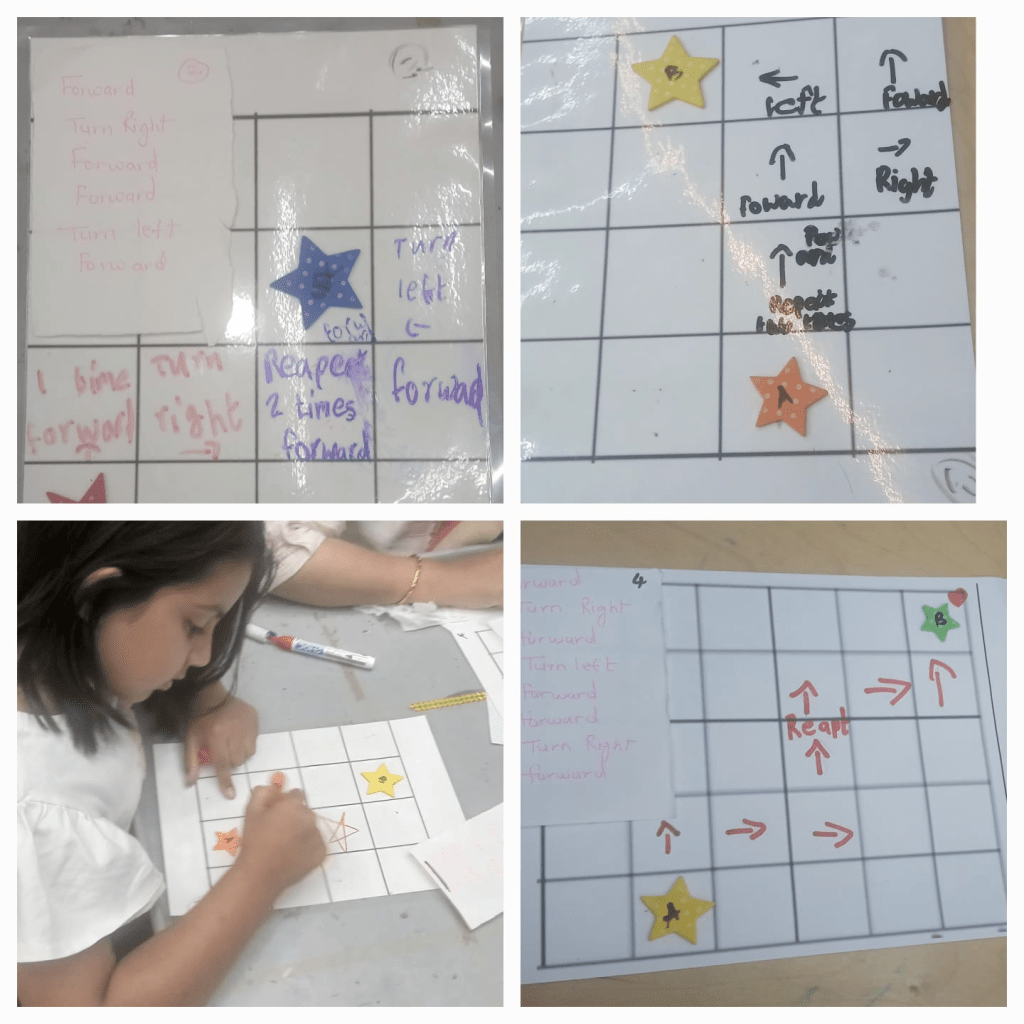
The children were able to recall and share the rules of the unplugged coding activity. They explained that a programmer needs to give clear instructions and correct directions for the robot to move. During the discussion, the children also shared their understanding of key coding terms: they said that ‘loop’ mean repeating steps again and again, and ‘debugging’ means finding and fixing an error.
The children demonstrated their understanding by following the instructions on their grids. They wrote clear codes, used directional steps, and applied repeat loops correctly. Neev and Mayra showed strong and clear understanding of the activity, while Tashi took more time because of irregular attendance. Samyuktha also showed her understanding using stars and arrows to represent the steps in her own creative way.
The class ended with HOTS (Higher Order Thinking Skills) questions, and the children wrote answers in their notebooks, showing good reflection and comprehension.
Dear reader,
I work with the school leadership team as an advisor and collaborate with teachers as a pedagogical trainer. I also help parents as a parenting counselor and regularly engage one-on-one with students as a personal guide and mentor. This weekly newsletter shares what I read, learn, and experience.
3-2-1 Tuesdays with Ms. Niv is a newsletter you can subscribe to and enjoy your learning journey with me.
3-2-1 Tuesdays with Ms Niv

Issue #285, 16th December 2025
Recipe to kill motivation has 6 key ingredients.
- Expected reward
- Expected evaluation
- Restricted choice
- Restricted time
- Surveillance
- Competition
Do you have any or all of these in your classroom? home environment for your students/children? this is not based on hunches or anecdotal evidences but empirical data and are cross cultural, cross time, cross age groups. Go ahead and continue reading this newsletter.
This is a free newsletter. If you like my content, please subscribe by entering your email address here.
Three Images of the Week



Two Thoughts of the Week
“Brains, like hearts, go where they are appreciated.”
–Robert McNamara, Fmr. American Secretary of Defense
“There is more hunger for love and appreciation in this world than for bread.”
–Mother Teresa, Roman Catholic Religious Sister and Missionary
One Video of the Week
“Cultivating Intrinsic Motivation and Creativity in the Classroom” | Beth Hennessey
Beth Hennessey is a professor of psychology at Wellesley College, and she studies the powerful link between intrinsic task motivation and creativity performance. Hennessey frequently teaches a seminar on the psychology of creativity, a course on research methods in educational psychology, and a class on the psychology of teaching, learning, and motivation. Teaching is what makes her “tick.” She studies it, writes about it, and does it fueled by her own unending intrinsic motivation.
Reading with Ms. Meenu: Tip of the week
Word Wisdom:
As adults, we know that the professional world judges spelling mistakes severely. Errors in job applications and resumes tend to bias recruiters against candidates and harm career advancement, studies show. What we may not fully appreciate is that the consequences of spelling woes emerge in elementary school, long before students enter the workforce.
Here are a few things you need to know now about how spelling impacts children and how you can impact their spelling.
Spelling is integral to developing into a reader and writer. Spelling is the glue that sticks words in memory, renders them instantly recognizable in print, and makes reading them quicker and more fluent. Research studies suggest that the more accurate and stable your memory of a word’s spelling, the faster you’ll read the word. Spelling knowledge has been directly linked to sight-word reading, reading fluency, and even third grade reading achievement scores. And evidence suggests that explicit spelling instruction improves students’ spelling as you would expect, while also supporting better phonological awareness and reading skills.
Spelling errors negatively bias teacher assessments in schools, even when that’s not for the focus of their grading. Appearances matter so much that it’s hard for teachers to separate the content of student writing (the knowledge it displays, arguments it makes, and quality of supporting evidence) from its presentation (handwriting, spelling and grammar). Teachers struggle to fairly and validly view the substance of work that has spelling issues. Thus, students who struggle with spelling are at risk of receiving lower grades in other subjects and having their competency overlooked.
Through the years, you’ll observe volumes of authentic writing in the lists, letters and stories kids pen at home. They are great fodder to identify the words your child wants to use, those they struggle with and what you should teach next. (If you’re ready to assess their spelling chops and they haven’t written anything at home lately, suggest they draw up a birthday or present wish list or write to a friend.
Free from the confines of rigid school schedules, you have more time as parents to instruct your child on the spellings of individual words, when and how they’re needed. By doing this parents can make a huge difference.
Happy Reading!
Meenu Gera
Consulting home and school librarian reading guide.
I Think, I Wonder, I Ask
–Dr Shreelakshmi Subbaswami, Academic Director, Vijaya School Hassan, Karnataka
Awards and Rewards- for Efforts or Outcomes?
This time of the year, schools are filled with competitions and announcements. For some children, it is a moment of joy and recognition. For others, it feels heavy-sometimes even intimidating. I have seen both…
Competitions do motivate some learners, yes. But for many, especially in the schooling years, they introduce pressure much earlier than confidence. At an age when children are still building their sense of self, these moments can shape how they see learning, success, and themselves.
This is where we, as educators, can pause and reflect. Are our reward systems inviting children to grow, or are they pushing them to perform? And more importantly, what exactly are we rewarding?
Too often, we celebrate outcomes rather than efforts. We say, “Good job” or “You are a good students” without naming what the child actually did well. Slowly, children begin to associate approval with results, not with the process of learning. In some classrooms, rewards even start to resemble bargaining: “Finish this and you will get that…”. Learning then becomes transactional, not meaningful.
I have seen something else work. When a teacher says, “I noticed you stayed with the task even when it was difficult”, the child engages better. When we say, “You found your own strategy-tell me how,” confidence grows. High-fives, eye contact, genuine curiosity, and asking how and why- these moments reward the now, the efforts.
As schools, we need reward and award systems that build motivation, self-regulation, and identify- that make learning joyful, relevant and self-driven.
Three questions for you…
- What behaviours and efforts do you consistently reward in your classroom?
- Which tasks truly need external rewards- and which thrive on interest and intrinsic motivation?
- How can you make efforts visible, even when outcomes fall short?
Career assessment, guidance, and placement strategies:
Summer Programs at RV University
Step Beyond Textbooks to experience interdisciplinary learning at RV Summer School for Grades 11 and 12. Meet the University Official on Jan 10th College Fair at Capstone High School, Hoskote, Bangalore, to know more about the summer programs offered by the University:
- School of Liberal Arts and Sciences
- School of Design and Innovation
- School of Business
- School of Economics and Public Policy
- School of Law
- School of Films, Media and Creative Arts
Fermata Career Solutions inspires young individuals aged 13 to 30 to unlock their potential through focused and customised career and college counseling. With expertise in University Readiness, CareerGym, and Master Parenting, the experts empower you to pursue your dreams and shape your future with confidence. More about us on www.fermataco.com
Showcase: Thrive Beyond School – A unique STEAM education project for very young learners.
– Pooja Khatter, facilitator, Thrive
The session began with an engaging book exploration to introduce the concept. The children read and observed Boxitects, The Shape of the World, Iggy Peck, Architect, and Someone Builds the Dream. Following the reading, they shared their understanding of the stories and confidently connected the ideas to the concept they were about to explore.
The children then observed two visuals—a 2D drawing of a cat and a 3D cat craft model. They identified that the 2D drawing could not stand, while the 3D model could stand on the table and looked more realistic. Mayra clearly explained that 2D has two dimensions—width and height—while 3D includes width, height, and length. Tashi made a meaningful connection to prior learning by sharing that a net can be folded to form a 3D shape.
When asked which shapes could be used to build the body of a cat, the children confidently named the sphere, cylinder, cuboid, and cube. The session concluded with the children stepping into the role of architects as they designed a school layout on paper, as a planning activity before moving on to 3D model construction.
Havishka: 7 years 7 months
Neev, Mayra & Tashi: 7 years 3 months

Dear reader,
I work with the school leadership team as an advisor and collaborate with teachers as a pedagogical trainer. I also help parents as a parenting counselor and regularly engage one-on-one with students as a personal guide and mentor. This weekly newsletter shares what I read, learn, and experience.
3-2-1 Tuesdays with Ms. Niv is a newsletter you can subscribe to and enjoy your learning journey with me.
3-2-1 Tuesdays with Ms Niv

Issue #284, 9th December 2025
When children choose what to write or how to write, creativity blooms. In classrooms where teachers talk less, listen more, students tend to write more and better. Some tips for parents and educators to support their children/students to enjoy writing:
- Offer writing choice menus: poem, diary entry, comic strip, story, letter, persuasive note, script, riddle, etc.
- Let them choose where to write—on the floor, in the window area, on the carpet, or at the group table.
- Integrate multisensory elements: music, nature walks, object observation, videos—students write from experience.
- Incorporate peer-sharing circles to build confidence and inspiration.
This is a free newsletter. If you like my content, please subscribe by entering your email address here.
Three Images of the Week



Two Thoughts of the Week
Stephen King: “The scariest moment is always just before you start. After that, things can only get better.”
Ralph Waldo Emerson: “The only way to write is to write.”
One Video of the Week
How can high school students develop critical thinking skills, courage to use their voice, and become more effective communicators? Creative writing. It’s powerful… but it’s not what we’re taught in the classroom. In this talk, Anna explains how language arts teachers can prepare their students for The Real World. She shares 3 techniques anyone can use to sprinkle personality into their writing. You’ll also hear the story of a modern one-room schoolhouse that illustrates the toxic environment all schools should avoid
Reading with Ms. Meenu: Tip of the week
Home Language is an advantage for Reading:
Parents who speak languages other than English at home may worry about whether they are pronouncing English phonemes correctly, and they can be hesitant to work on phonological awareness as a result. Don’t even worry about it. There’s evidence to suggest that phonological awareness originally developed in a different language like the parent and child’s first language transfers to phonological awareness and improves word reading skills in English. All languages have underlying sound structures that children need to gain familiarity with, so there’s value in working on phonological awareness in whatever language the parent or caregiver is most comfortable with. Take pride in your first language, keep it central to your child’s life, and seize opportunities for wordplay. You can make up silly sentences with words beginning with the same sound in Hindi or another language just as easily as in English.Use your own language that you’re confident in when they’re little, and get them to hear the sounds in your home language and develop those skills, because that’s an absolute treasure.
There’s beauty and consequence in using your own language. It’s important for little ones that they just start hearing the sounds in their language – being consciously aware of the first sounds and words, listening to the rhythms of their language, and really bringing their attention to the sound structure of their language.
Early on, kids are developing the cognitive ability to hear sounds in words, starting with listening to the rhythms of songs and everyday language. So even if it’s a goal for your child to learn English, in this early stage there’s a benefit to using your home language to build phonological skills. There’s evidence for cross-language transfer.
If you’re good at phonological awareness in your first language, you will pick up those same types of phonological awareness skills when you come to learn a second language. And equally, if you struggle in one language, you will struggle in another. But don’t stop there. If English fluency is your goal, seek out opportunities for your child to gain exposure to English phonemes, the English alphabet, and oral language.
As a parent you don’t have to provide all the language experience your child needs yourself. You can give them the best of what you have and seek out what you can’t directly provide. Sometimes, the conversation partners, word-game players, and nursery-rhyme singers you need may be found in friends or family members who speak the target language, at library programs or in early day care centres. Audiobooks, recorded music, and cartoons in the second language provide language exposure too. Get clear on what you can give, and get intentional about supplementing the rest. This whole process leads to strong reading skills.
Happy Reading!
Meenu Gera
Consulting home and school librarian reading guide.
I Think, I Wonder, I Ask
–Dr Shreelakshmi Subbaswami, Academic Director, Vijaya School Hassan, Karnataka
Writing Beyond Beautiful Letters
Writing is one of the most powerful human abilities, yet somewhere along the way, in many school, writing is still an exercise in perfecting letters rather than a tool for thinking and expression. For years, many classrooms have been obsessed with handwriting drill: hours of copy-writing, pattern tracing, erasing and rewriting…
I often hear teachers say, “Rewrite this, the handwriting isn’t good.” And children follow, practicing the same sentence multiple times, not to improve the clarity of their thoughts. Even in high school, I see students spending precious hours rewriting notes to make them look “perfect”, instead of using those hours thinking deeply, reflecting, and crafting original ideas.
What is good handwriting, really?
It is writing that is legible, comfortable to read, and owned by the writer. It does not need to be artistic, identical, or ornamental. It needs to carry the student’s voice.
Last week in a Show and Tell session, our five- years-olds proudly read out their writing about families. Nothing fancy. No identical strokes. Just honest, neat, meaningful writing, they had the joy on their faces, as peers, read their words. For all who witnessed this, it was a gentle reminder that writing is meant to be heard, shared, and felt. Not judged for aesthetics.
Expression is a skill, when we nurture it early, children learn to think, reflect, and communicate with courage. Handwriting will follow. It always does.
Three questions for you…
- What strategies do you use to build confident and expressive writers?
- How much should handwriting matter- and why does it matter to you?
- What would change in classrooms if we valued ideas over appearance?
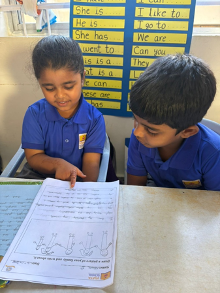
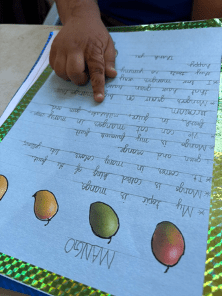
Career assessment, guidance, and placement strategies:
Navigating the College Application Journey: 5 Ways Parents Can Empower Their Grade 12 Child
Grade 12 is a whirlwind of emotions, academic pressure, and big decisions, especially regarding college applications. You naturally want to help as a parent, but finding the right balance between support and overstepping can be tricky. This post offers five key tips on empowering your child to navigate this exciting yet sometimes stressful process with confidence and ownership.
- Foster Ownership: It’s Their College List
It’s easy to get caught up in our own aspirations for our children but remember: your child is the one who will be attending college, not you. Encourage them to take the lead in researching institutions and developing their college list.
- Guide Towards a Realistic & Balanced List
While fostering ownership is crucial, providing guidance on creating a realistic list is equally important. A well-rounded college list typically includes a mix of ‘reach,’ ‘target,’ and ‘safety’ colleges.
- Brainstorm Course and Major Choices Together
Encourage your child to think about their passions, strengths, and what subjects genuinely excite them. The goal here is to help them identify areas of study that spark their curiosity.
- Navigating the ‘Course vs. College Name’ Conundrum
For some students, the specific course or program they want to study is paramount, while for others, the prestige or reputation of the college holds more weight. This can be a point of discussion and gentle guidance.
- Be Present: The Power of Silent, Available, and Mindful Support
The college application process is emotionally charged. Your child will experience moments of excitement, frustration, anxiety, and perhaps even rejection. Your emotional support is invaluable.
The career counselors at Fermat specialize in Profile Building and College Essays.
Fermata Career Solutions inspires young individuals aged 13 to 30 to unlock their potential through focused and customised career and college counseling. With expertise in University Readiness, CareerGym, and Master Parenting, the experts empower you to pursue your dreams and shape your future with confidence. More about us on www.fermataco.com
Showcase: Thrive Beyond School – A unique STEAM education project for very young learners.
– Pooja Khatter, facilitator, Thrive

Tashi and Havishka designed a model of their school using recycled materials such as cardboard, boxes, plastic bottles, sticks, plastic containers, and paper roll tubes. They worked like young engineers, carefully focusing on stability and strong structure while building. After completing their models, they confidently spoke about their imaginary schools and identified the different shapes used in their construction. The session ended with Higher Order Thinking Skills (HOTS) questions, which the children thoughtfully answered in their notebooks. Havishka: 7 years 7 months Tashi: 7 years 3 months
Dear reader,
I work with the school leadership team as an advisor and collaborate with teachers as a pedagogical trainer. I also help parents as a parenting counselor and regularly engage one-on-one with students as a personal guide and mentor. This weekly newsletter shares what I read, learn, and experience.
3-2-1 Tuesdays with Ms. Niv is a newsletter you can subscribe to and enjoy your learning journey with me.
3-2-1 Tuesdays with Ms Niv

Issue #283, 2nd December 2025
Next weekend, parents how about prioritising playtime for your child at home and dear teachers, create some time everyday in the school timetable for some unstructured play.
Why?
Play is essential for children’s cognitive, social, and emotional development, allowing them to explore ideas, practice skills, and make sense of the world through hands-on experience. When children are given unstructured time to play freely, they develop creativity, problem-solving abilities, and resilience as they navigate challenges and invent their own games.
Dedicating sufficient time for play—without rushing or over-scheduling—helps children build confidence, form meaningful relationships, and discover their interests in ways that structured activities alone cannot provide.
5 Everyday Items for Play at School and Home:
- Cardboard boxes (for building forts, cars, houses, or imaginative spaces)
- Kitchen utensils and containers (for pretend cooking, measuring, and sensory exploration)
- Blankets and pillows (for creating dens, obstacle courses, or cozy reading nooks)
- Natural materials like sticks, stones, and leaves (for outdoor creativity and nature play)
- Art supplies like paper, crayons, and scissors (for drawing, cutting, and creative expression)
This is a free newsletter. If you like my content, please subscribe by entering your email address here.
Three Images of the Week
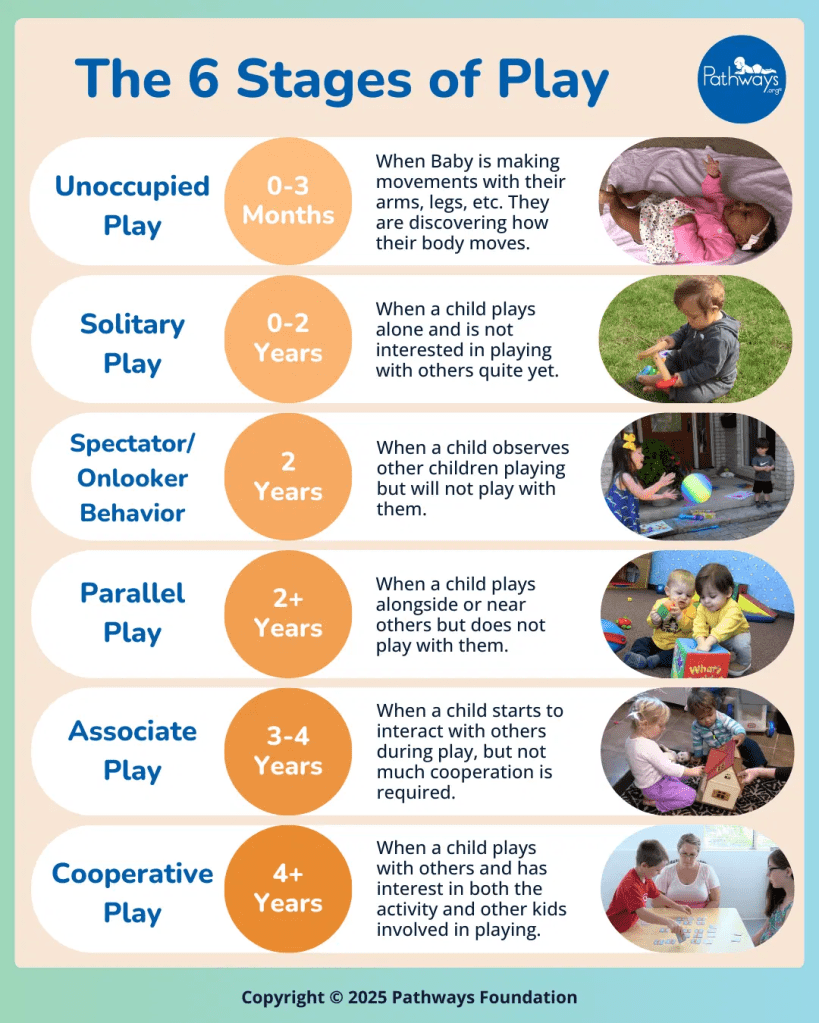

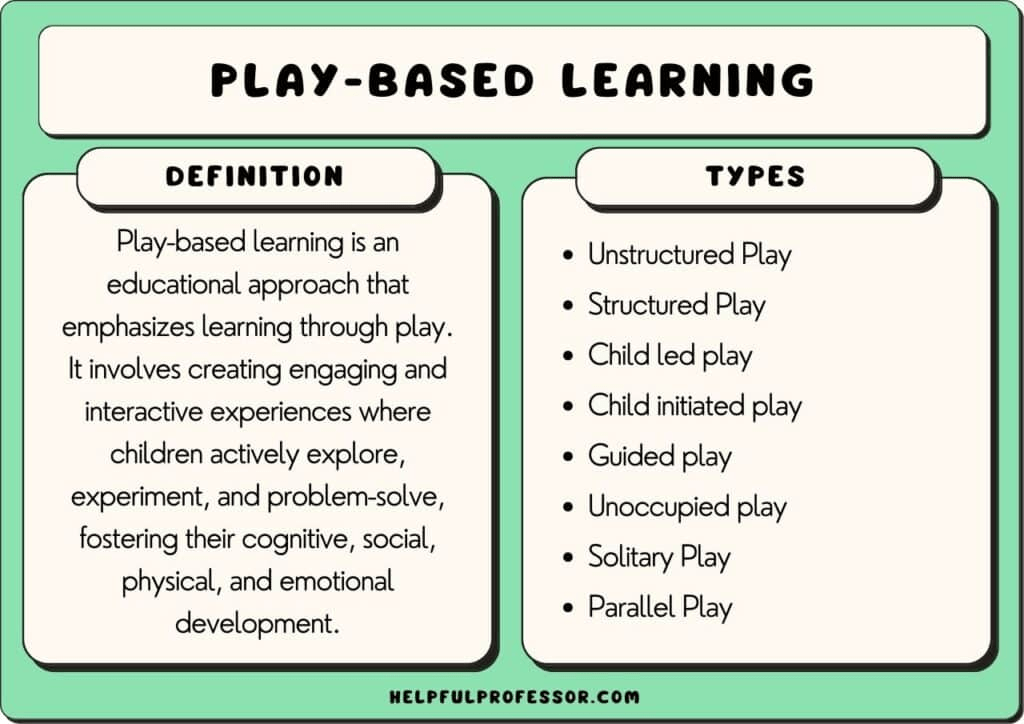
Two Thoughts of the Week
“Play gives children a chance to practice what they are learning.”
- Fred Rogers
“Children learn as they play. Most importantly, in play children learn how to learn.”
- O. Fred Donaldson, Ph.D., play researcher
One Video of the Week
A little bit of playtime can have big benefits for a child’s developing brain, but adult participation is a crucial ingredient for best results. Early-education leader Jesse Ilhardt makes the case for you to put down the phone, pick up the make-believe tea cup (or that blanket-superhero cape) and take the time to experiment with imagination during kids’ most formative learning years. Directed by Sinan Göksel, Studio Big Box.
Reading with Ms. Meenu: Tip of the week
Raising a Reader:
Phonological Awareness plays a big role in raising a reader. Whenever urgency or anxiety you feel about raising a reader needs to be held at a distance during the actual work. In fact, to the greatest extent possible, building phonological awareness needs to look, talk, walk and act like play.
It’s not drill and kill. It’s singing “The Name Game.” It’s talking in Pig Latin. It’s playing I Spy with beginning sounds or rhyming words instead of colors. (I spy something that rhymes with tike. Yes, the bike!).
When you recite nursery rhymes, you’re heightening the kid’s sensitivity to the syllables and the beginning, middle and ending sounds within words. The stress patterns of classics like “Jack and Jill went up the Hill” help them learn about syllables and rhymes, important phonological awareness skills. And the alliteration in a rhyme like “Peter Piper Picked a Peck of Pickled Peppers” accentuated the /p/ sound and distinguishes it from surrounding sounds, a finer-grained level of phoneme sensitivity.
Spoonerisms are another fun source of phonological play. Sometimes they occur naturally in conversation when you accidentally say things like I “zipped the skoom meeting” instead of “I skipped a Zoom meeting”. But you can intentionally mix up initial sounds as a game, and give examples by saying: “Let’s mix up some sounds Instead of saying, “It’s dinnertime,” we can say, “It’s tinnertime”.
The lesson from all this is that you can easily build phonological awareness anytime, anywhere, with just your voice and your child’s attention.
A great irony of raising readers is that the critically important, life-trajectory-altering, high-stakes work of building these foundational skills is best done with the lightest, nearly imperceptible touch. The subtler the accumulation of moments of speech, song, and play over the course of years, the better, experts agree.
You may have noticed that this discussion of phonological awareness slid into talk of teaching letter sounds. And that’s the fact of raising real readers you’re going to be teaching many skills simultaneously. Spellings, pronunciations, and meaning are all intertwined in learning and memory. To achieve this whichever approach we want to take (books, wordplay, visual cues etc.) remember to keep it fun and be encouraging. Reading should be done for the love of reading NOT for the sake of it!
Happy Reading!
Meenu Gera
Consulting home and school librarian reading guide.
I Think, I Wonder, I Ask
–Dr Shreelakshmi Subbaswami, Academic Director, Vijaya School Hassan, Karnataka

Learning at Pace, Not in Race
Somewhere along the way, schooling has become a sprint. A 40-minute class feels like a countdown timer- teachers rushing to cover content, students racing to respond, and everyone silently competing against the clock. But learning is not a race, it is a human process that unfolds at its own pace. Every child and every adult learn differently at their own pace.
Last week during a Show and Tell, a five year old paused mid- sentence. She was thinking- eyes searching as she tried to recall the right word. Before she could find it, a well- meaning teacher jumped in, prompted her, and pushed her forward. The child repeated what she was told. I wondered: What would she have said if we had waited just ten seconds longer?
In another instance, a child was solving a new math problem. He paused, unsure. The teacher grew nervous- What if he cannot do it? But when we gave him time, we could see the progress- he tried, peers supported him, he tested his own reasoning and eventually arrived at the correct answer- with joy on his face.
We do this every day. We complete children’s sentences. We nod too quickly, signaling right or wrong before they have had a chance to struggle with an idea. We rush them through cognitive struggle, denying them the joy of discovering their own thinking. We call it helping- but sometimes, is it actually robbing them of the process.
Children need time to think, try, fail and try again. Our role as educators is not to accelerate learning, but to respect the pace, to trust that students can reach understanding without us spoon-feeding the way.
One change that helped us slow down was extending time blocks in Early Years classrooms. The shift was visible- calmer teachers, thoughtful students, deeper engagement. Time became a gift.
Imagine what education could be if we stopped racing…
Three questions for you…
- What do we lose when we rush learning?
- When was the last time you waited long enough for a child to truly think?
- What practices can you bring into your classroom to give more time to yourself and your students?
Career assessment, guidance, and placement strategies:
Summer Programs at ATLAS SkillTech University, India
Planning for the summer school has started. We bring you the prestigious, well-known, and lesser-known summer programs for career clarity and academic development. We have been sharing the details of engaging summer programs offered by universities in India and abroad. This issue talks about the two-week residential summer programs offered by ATLAS SkillTech University for grade 9-12 students:
- ISDI Design Summer School
- Understand Design Disciplines
- Kick Start your design portfolio
- Network, collaborate, and co-create with like-minded individuals
- Enhance your skills and competencies
- ISME Business School
- Understand your management disciplines
- Articulate your statement of purpose
- Network, collaborate, and co-create with like-minded individuals
- Enhance your skills and competencies
- uGDX – Tech Summer School
- Understanding new age technologies
- Get a peek into your future at a Tech School
- Network, collaborate, and co-create with like-minded individuals
- Enhance your skills and competencies
Fermata Career Solutions inspires young individuals aged 13 to 30 to unlock their potential through focused and customised career and college counseling. With expertise in University Readiness, CareerGym, and Master Parenting, the experts empower you to pursue your dreams and shape your future with confidence. More about us on www.fermataco.com
Fermata Career Solutions inspires young individuals aged 13 to 30 to unlock their potential through focused and customised career and college counseling. With expertise in University Readiness, CareerGym, and Master Parenting, the experts empower you to pursue your dreams and shape your future with confidence. More about us on www.fermataco.com
Showcase: Thrive Beyond School – A unique STEAM education project for very young learners.
– Pooja Khatter, facilitator, Thrive

Tashi actively participated in our 3D shapes lesson and confidently identified shapes such as the cube, cuboid, cylinder, and rectangular prism. She was also able to describe each shape by sharing the number of faces, edges, and vertices.
Tashi made meaningful connections to real life by identifying examples like a door, ice cubes, and a bottle cap. She enjoyed the hands-on activity where she used popsicle sticks and clay to build her own 3D models. She also demonstrated careful work while making a paper box, following the lines and folding the net correctly to form the shape.
The session concluded with a reflection activity, where Tashi wrote her answers thoughtfully in her notebook, showing her understanding of the day’s learning.
Dear reader,
I work with the school leadership team as an advisor and collaborate with teachers as a pedagogical trainer. I also help parents as a parenting counselor and regularly engage one-on-one with students as a personal guide and mentor. This weekly newsletter shares what I read, learn, and experience.
3-2-1 Tuesdays with Ms. Niv is a newsletter you can subscribe to and enjoy your learning journey with me.
3-2-1 Tuesdays with Ms Niv

Issue #282, 24th November 2025
Is this taking time away from things I actually care about? How do I feel immediately after doing this—energized or drained, proud or regretful? What would change in my life if I kept doing this for the next month or year?
The year is almost ending. It’s time to catch up with ourselves as educators, parents, and students. We should ponder over our existing habits.
What usually happens right before I do this (certain time, emotion, place, or person)? Am I using this behavior to avoid something uncomfortable? Do I find myself making excuses or hiding this behavior from others?
This is a free newsletter. If you like my content, please subscribe by entering your email address here.
Three Images of the Week



Two Thoughts of the Week
Whatever you want to do, if you want to be great at it, you have to love it and be able to make sacrifices for it. – Dr. Maya Angelou
“All big things come from small beginnings. The seed of every habit is a single, tiny decision. But as that decision is repeated, a habit sprouts and grows stronger. Roots entrench themselves and branches grow. The task of breaking a bad habit is like uprooting a powerful oak within us. And the task of building a good habit is like cultivating a delicate flower one day at a time.”
― James Clear, Atomic Habits: An Easy & Proven Way to Build Good Habits & Break Bad Ones
One Video of the Week
Can we break bad habits by being more curious about them? Psychiatrist Judson Brewer studies the relationship between mindfulness and addiction — from smoking to overeating to all those other things we do even though we know they’re bad for us.
Learn more about the mechanism of habit development and discover a simple but profound tactic that might help you beat your next urge to smoke, snack or check a text while driving.
Reading with Ms. Meenu: Tip of the week
How Reading Aloud Fortifies Talk?
None of this emphasis on early talk with kids should dampen your enthusiasm for reading aloud. In fact, reading picture books to and with kids boosts their oral-language experience by introducing more and more diverse vocabulary. Researchers at the Ohio State University in collaboration with the Columbus Metropolitan Library estimated that kids whose parents read them five board or picture books a day would have heard 1.4 million more words during story book reading by age 5 than children who were never or seldom read.to. Other studies have found that the vocabulary within picture books is more novel, challenging, and enriching than what’s typically heard in everyday family conversation.
Reading with babies especially is a sensory, dynamic, visceral experience and an efficient vehicle for the back and forth language we’re going for. Every part of the exchange is novel for the infant – the smell of the book, the feel of the pages, and the motion as you move from cover to cover. Not to mention the look of the text and images on the page, and the words, sounds and gestures they elicit from their parent.
With so much going on, where should be a parent focus during Storytime? On the relationship, I say. For the first year of your child’s life, don’t worry about teaching. Stay in Nurture mode. Hold your baby close. Tune in to their responses. Lean in to their coos, babbles, kicks and giggles, and return it all with as much vocabulary rich talk as you can muster. You can’t go wrong when you open a book, read and follow the child’s lead.
As your little one grows into a toddler, preschooler and beyond books can help them learn all kinds of things, from sound awareness and letter knowledge to story structure and science. The possibilities for meaningful, expansive conversation are endless when a well-chosen book, enthusiastic parent and engaged child commune. Visit https://mayasmart.com/reading-for-our-lives/ for a list of recommended reads for each age and stage.
Happy Reading!
Meenu Gera
Consulting home and school librarian reading guide
I Think, I Wonder, I Ask
–Dr Shreelakshmi Subbaswami, Academic Director, Vijaya School Hassan, Karnataka
Look Back to Leap Forward
Looking back is not a mere act of nostalgia; I see it as a powerful tool to understand who we are, what we value, and how we shape the future. The intention of this reflection is simple: to pause, question, and realign ourselves as school leaders, teachers, parents, and students so we can build a more purposeful and relevant present and future.
When I looked closely at the past practices of our 25+ years old school, a place where I studied and have now returned to lead, I realized how much wisdom is there in our history. Some beautiful traditions have faded and need to be revived. Some practices remain strong and must be conserved, and a few must be let go of to make space for new and relevant ways of learning. This process is delicate. It requires sensitivity, trust, reassurance and constant communication with all stakeholders. After all, every decision we make is guided by one purpose- serving the needs of today’s learners as they grow into the world of tomorrow.
Looking back is a practice each of us can adopt. Students can reflect on their habits and ask what they need to start, stop, or continue to grow. Teachers can revisit pedagogies- revive what worked, adapt what needs rethinking, and discard what no longer serves today’s learners. Parents, too, can examine expectations and approaches that shape a child’s learning environment.
Three questions for you…
- What parts of our past are we unconsciously carrying into the future—and should we?
- What parts of our present approach reflect intentional future-thinking, and what parts are merely repetitions of the past?
- Which habits, beliefs, or practices deserve revival, and which ones must we courageously let go of?
Career assessment, guidance, and placement strategies:
Summer Programs at ATLAS SkillTech University, India
Planning for the summer school has started. We bring you the prestigious, well-known, and lesser-known summer programs for career clarity and academic development. We have been sharing the details of engaging summer programs offered by universities in India and abroad. This issue talks about the two-week residential summer programs offered by ATLAS SkillTech University for grade 9-12 students:
- ISDI Design Summer School
- Understand Design Disciplines
- Kick Start your design portfolio
- Network, collaborate, and co-create with like-minded individuals
- Enhance your skills and competencies
- ISME Business School
- Understand your management disciplines
- Articulate your statement of purpose
- Network, collaborate, and co-create with like-minded individuals
- Enhance your skills and competencies
- uGDX – Tech Summer School
- Understanding new age technologies
- Get a peek into your future at a Tech School
- Network, collaborate, and co-create with like-minded individuals
- Enhance your skills and competencies
Fermata Career Solutions inspires young individuals aged 13 to 30 to unlock their potential through focused and customised career and college counseling. With expertise in University Readiness, CareerGym, and Master Parenting, the experts empower you to pursue your dreams and shape your future with confidence. More about us on www.fermataco.com
Showcase: Thrive Beyond School – A unique STEAM education project for very young learners.
– Pooja Khatter, facilitator, Thrive
The children were introduced to the concept of tessellation and watched a short video to understand how shapes fit together without leaving any gaps. They then created their own tessellation art and identified real-life examples such as giraffe skin, snake patterns, walls, and floor tiles. They also wrote their reflections in their notebooks. NEEV &MAYRA: 7years 3 months old

Dear reader,
I work with the school leadership team as an advisor and collaborate with teachers as a pedagogical trainer. I also help parents as a parenting counselor and regularly engage one-on-one with students as a personal guide and mentor. This weekly newsletter shares what I read, learn, and experience.
3-2-1 Tuesdays with Ms. Niv is a newsletter you can subscribe to and enjoy your learning journey with me.